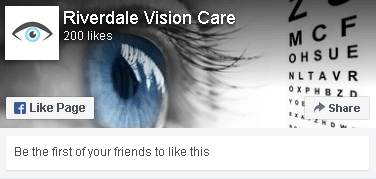Eye Pains You Shouldn’t Ignore: When to Seek Help Before It’s Too Late
You want to be brave, but sometimes being brave isn’t the best thing for you, especially when it comes to your eyes. Eye discomfort can sometimes seem harmless—a minor irritation that fades after rest or eye drops. But not all eye pain is the same. In some cases, what feels like a small issue could point to something more serious. Knowing when to get help for eye pain can make the difference between a quick fix and risking your vision.
Sudden, Sharp Pain
If you experience sudden, sharp pain in one or both eyes, especially if it comes with blurred vision, light sensitivity, or redness, it’s time to call your optometrist in Riverdale, NJ. These symptoms can be signs of acute angle-closure glaucoma, a condition that causes a rapid increase in eye pressure. This is a true medical emergency and needs immediate attention to prevent vision loss.
Pain Accompanied by Redness or Swelling
Eye pain that’s paired with redness, swelling, or discharge could be caused by an infection like conjunctivitis or uveitis. These conditions can become serious if untreated, leading to complications that may affect your sight. While some types of conjunctivitis clear up on their own, others require medication. Don’t try to guess—get it checked.
Discomfort After an Injury
If you’ve scratched your eye, gotten hit in the eye, or had something foreign enter it (like debris or chemicals), and pain persists afterward, seek care right away. Corneal abrasions and chemical injuries can lead to scarring or infection. Quick treatment helps prevent long-term damage.
Aching Pain Behind the Eyes
A deep, aching sensation behind the eyes can sometimes be linked to eye strain or sinus issues—but it could also signal optic neuritis or other concerns, such as diabetic retinopathy in Riverdale, NJ. If this type of pain is accompanied by vision changes or headache, don’t ignore it. Prompt evaluation is essential.
When in Doubt, Get It Checked
It’s easy to assume eye pain is temporary, especially if your vision still seems okay. But because the eyes are delicate and symptoms can escalate quickly, it’s always better to play it safe. If the pain is sharp, persistent, or paired with other unusual symptoms, don’t wait.
Protecting your vision means listening to your body. When your eyes hurt in ways that feel out of the ordinary, trust that it’s worth getting professional care—before it becomes something more serious.











